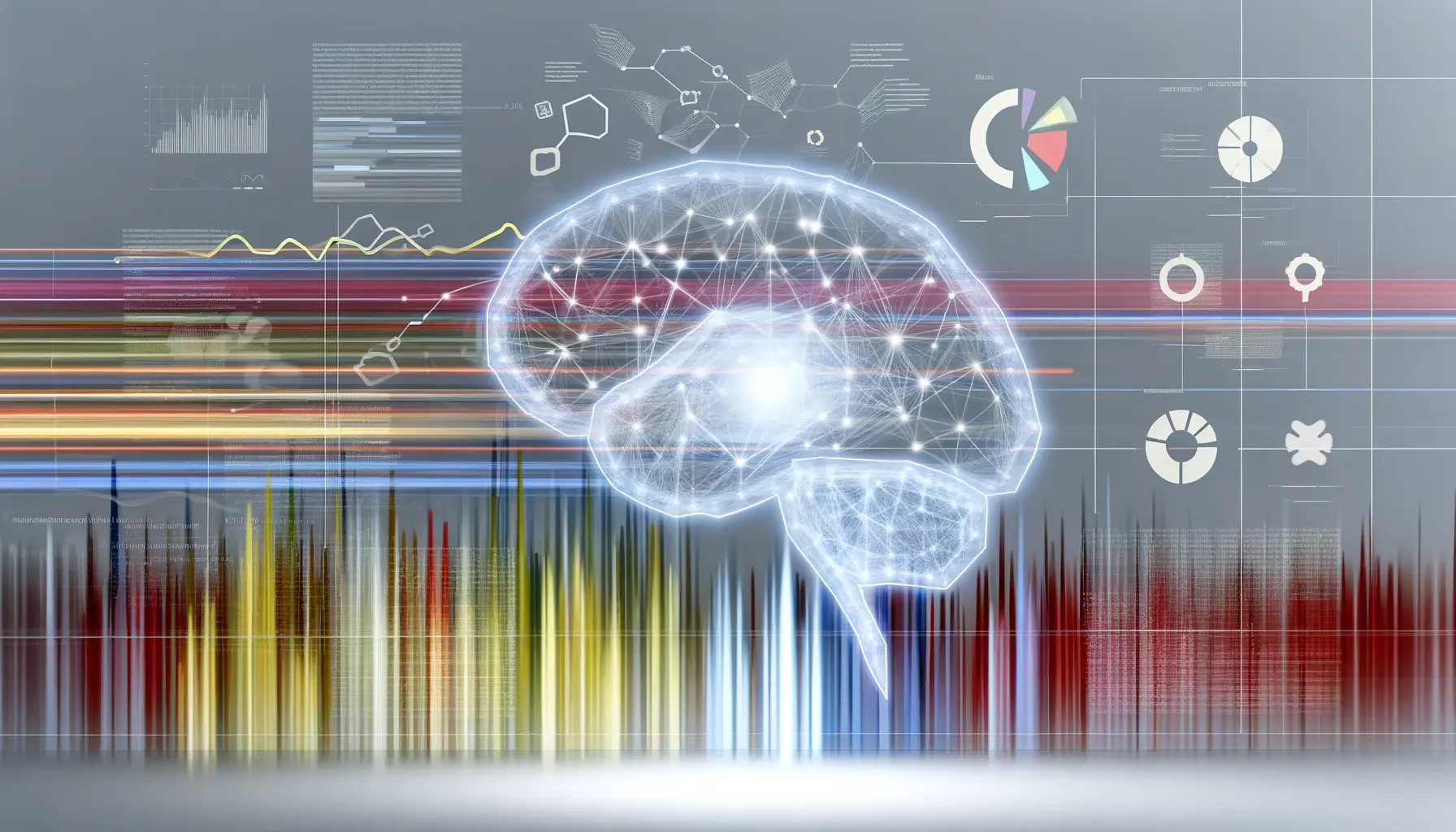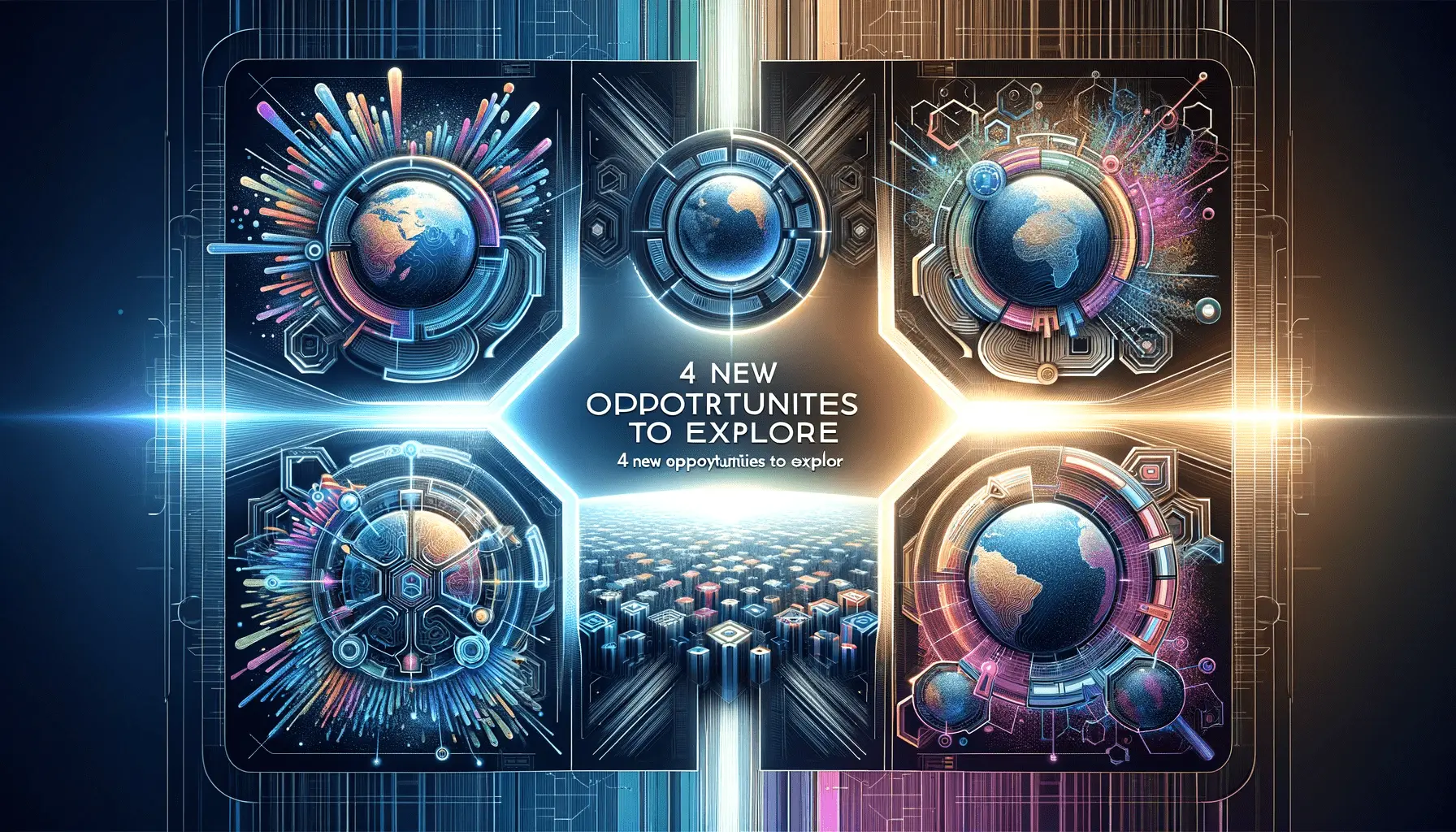The digital marketing landscape in 2024 presents a complex ecosystem, evolving at an unprecedented pace.
As we delve into this dynamic world, it’s crucial to understand the interplay of technologies, strategies, and consumer behaviors shaping the future of marketing.
Digital marketing, as a cornerstone of modern business strategies, encompasses a wide array of practices aimed at reaching, engaging, and converting online audiences.
This article aims to explore the multifaceted nature of the digital marketing ecosystem in 2024, highlighting key trends, technologies, and methodologies that are defining the field.
At the heart of this exploration is the recognition of digital marketing’s role in connecting brands with consumers across various digital channels.
The ecosystem in 2024 is not just about leveraging new technologies but also about understanding the changing consumer expectations and the ethical considerations that come with data-driven marketing.
By examining the components of this ecosystem, from AI-driven personalization to the integration of immersive technologies, we can gain insights into how businesses can navigate this landscape to create meaningful and impactful marketing strategies.
- Understanding the Digital Marketing Ecosystem
- Emerging Technologies Shaping Digital Marketing
- Consumer Data Privacy and Ethical Marketing
- Integrating Social Media into Digital Marketing
- Content Marketing Evolution and Strategies
- SEO Innovations and Best Practices
- Measuring Success in Digital Marketing
- Forging Ahead: The Future of Digital Marketing in 2024
- Digital Marketing Ecosystem in 2024 FAQs
Understanding the Digital Marketing Ecosystem
The digital marketing ecosystem in 2024 is a tapestry of interconnected elements, each playing a critical role in the success of online marketing efforts.
At its core, this ecosystem is built on the foundation of data analytics, content marketing, search engine optimization (SEO), social media, and emerging technologies such as artificial intelligence (AI) and augmented reality (AR).
Understanding how these components work together provides marketers with a blueprint for crafting strategies that resonate with their target audience.
One of the key drivers of the digital marketing ecosystem’s evolution is the advancement in AI and machine learning technologies.
These innovations have transformed how marketers analyze data, automate processes, and personalize content.
AI’s ability to process vast amounts of data in real-time enables marketers to deliver more relevant and engaging experiences to consumers.
This not only enhances the effectiveness of marketing campaigns but also helps in building deeper connections with audiences.
Role of SEO and Content Marketing
SEO and content marketing remain at the forefront of digital marketing, acting as the pillars that support visibility and engagement in the digital realm.
In 2024, the integration of these strategies is more critical than ever.
SEO practices have evolved to focus not only on keywords and backlinks but also on the user experience, mobile optimization, and the quality of content.
The goal is to provide value to users, answering their questions and solving their problems through well-crafted content, thereby improving search rankings and driving organic traffic.
Content marketing, on the other hand, has expanded beyond blogs and articles to include videos, podcasts, infographics, and interactive content.
This diversification reflects a shift towards more engaging and informative content that meets the audience’s needs.
By leveraging various content formats, marketers can enhance their storytelling, making it more accessible and appealing to a broader audience.
This approach not only boosts engagement but also establishes the brand’s authority in its niche.
Incorporating AI and machine learning into SEO and content marketing strategies can significantly enhance the personalization and effectiveness of digital marketing campaigns.
Emerging Technologies Shaping Digital Marketing
The landscape of digital marketing in 2024 is being profoundly shaped by emerging technologies, offering new ways to engage consumers and personalize experiences at scale.
Among these, artificial intelligence (AI), augmented reality (AR), and virtual reality (VR) stand out as transformative forces.
These technologies are not just reshaping the strategies but also redefining the expectations and interactions between brands and their audiences.
AI, in particular, has become a cornerstone of digital marketing, enabling sophisticated data analysis, predictive modeling, and automated decision-making.
This allows for unprecedented levels of personalization and efficiency, making marketing efforts more targeted and effective.
Meanwhile, AR and VR are creating immersive experiences, bridging the gap between digital and physical worlds and offering consumers new ways to explore products and services.
Artificial Intelligence in Personalization and Automation
- AI-driven chatbots and virtual assistants are enhancing customer service, providing instant responses and support to users’ queries.
- Personalized content recommendations powered by AI algorithms help in delivering content that matches the individual preferences and behaviors of users, increasing engagement and conversion rates.
- Predictive analytics enable marketers to anticipate future consumer behaviors and trends, allowing for more strategic planning and targeting.
Augmented Reality and Virtual Reality in Marketing
- AR applications allow consumers to visualize products in their own environment before making a purchase, enhancing confidence and satisfaction.
- VR experiences offer immersive brand encounters, from virtual store tours to product demonstrations, enriching the consumer’s journey and fostering a deeper brand connection.
- Both AR and VR technologies are being used for storytelling, creating engaging and memorable brand narratives that captivate audiences.
The integration of AI, AR, and VR into digital marketing strategies not only enhances customer engagement but also provides brands with innovative ways to stand out in a crowded marketplace.
Consumer Data Privacy and Ethical Marketing
In the digital marketing ecosystem of 2024, consumer data privacy and ethical marketing practices have become paramount.
With increasing concerns over data breaches and misuse, brands are navigating a tightrope between leveraging data for personalized marketing and respecting consumer privacy.
The emphasis on ethical marketing reflects a broader shift towards transparency, consent, and data security, shaping how companies collect, use, and store consumer information.
This shift is not just about compliance with regulations like GDPR in Europe or CCPA in California but also about building trust with consumers.
Trust has become a critical currency in the digital age, with consumers favoring brands that demonstrate respect for their privacy and use their data responsibly.
This has led to the adoption of privacy-first marketing strategies, where personalization is balanced with privacy considerations.
Implementing Privacy-First Strategies
- Transparency in data collection and use, clearly informing consumers about what data is collected and how it will be used.
- Offering consumers control over their data, including options to opt-out of data collection or delete their information.
- Ensuring data security, adopting robust measures to protect consumer data from breaches and unauthorized access.
Building Consumer Trust through Ethical Practices
- Engaging in responsible marketing, avoiding misleading claims, and ensuring that marketing messages are honest and ethical.
- Focusing on value-driven content, prioritizing the delivery of useful and relevant information over aggressive sales tactics.
- Emphasizing social responsibility, aligning marketing practices with broader societal values and contributing to positive social impact.
Adopting privacy-first and ethical marketing practices is not only a legal necessity but also a strategic advantage, fostering long-term loyalty and trust among consumers.
Integrating Social Media into Digital Marketing
Social media’s role in the digital marketing ecosystem of 2024 continues to expand, offering brands unparalleled opportunities to engage with their audience.
The integration of social media into digital marketing strategies is now a necessity, driven by the platforms’ vast reach and the depth of engagement they facilitate.
This integration goes beyond mere presence, focusing on leveraging social media’s unique features to create compelling, interactive, and personalized marketing experiences.
The evolution of social media platforms, with the introduction of features like shoppable posts, live streaming, and augmented reality filters, has opened new avenues for brands to connect with consumers.
These features not only enhance the user experience but also provide marketers with innovative tools to showcase their products, tell their brand stories, and interact with their audience in real-time.
Leveraging Social Media for Engagement and Conversion
- Utilizing shoppable posts and stories to streamline the shopping experience, allowing consumers to purchase products directly through social media platforms.
- Engaging with audiences through live streaming events, Q&A sessions, and interactive polls, fostering a sense of community and real-time interaction.
- Creating personalized content that resonates with the target audience, using data analytics to tailor messages and offers to individual preferences.
Maximizing Reach with Influencer Collaborations
- Partnering with influencers to tap into their followers and leverage their credibility and reach, effectively reaching niche markets.
- Developing authentic and transparent influencer campaigns that align with the brand’s values and message, ensuring genuine engagement.
- Measuring the impact of influencer collaborations on brand awareness, engagement, and conversion rates, optimizing strategies for better results.
Social media is not just a channel for promotion but a platform for building meaningful relationships with consumers, driving engagement, and enhancing brand loyalty.
Content Marketing Evolution and Strategies
The realm of content marketing has undergone significant evolution by 2024, with strategies becoming more sophisticated and tailored to meet the ever-changing consumer demands and technological advancements.
Content is no longer just about writing articles or creating blog posts; it’s about crafting experiences that engage, inform, and convert audiences across multiple platforms.
The focus has shifted towards creating a diverse content ecosystem that caters to the preferences of a fragmented audience, utilizing a mix of formats and channels to maximize reach and impact.
Strategic storytelling, interactive content, and personalized messaging stand out as key elements in the modern content marketing playbook.
These approaches are designed to captivate the audience’s attention, providing value and fostering a deeper connection with the brand.
By leveraging data analytics and AI, marketers can now understand their audience better than ever, enabling the creation of content that resonates on a personal level.
Strategic Storytelling and Interactive Content
- Employing narrative-driven content to share brand stories, values, and missions, engaging consumers on an emotional level.
- Integrating interactive elements such as quizzes, surveys, and interactive infographics to enhance user engagement and gather valuable insights.
- Using video content, including live streams, webinars, and explainer videos, to provide immersive and informative experiences.
Personalization and Data-Driven Content Creation
- Leveraging user data to tailor content to individual preferences, behaviors, and stages in the customer journey, increasing relevance and impact.
- Utilizing AI tools for content optimization and personalization, ensuring that each piece of content speaks directly to its intended audience.
- Conducting A/B testing and using analytics to refine content strategies, focusing on what works best for engaging and converting audiences.
The evolution of content marketing emphasizes the importance of adaptability, creativity, and a deep understanding of the audience, ensuring that content not only reaches but also resonates and drives action.
SEO Innovations and Best Practices
By 2024, the landscape of Search Engine Optimization (SEO) has witnessed substantial innovations, driven by evolving search engine algorithms, user behavior changes, and technological advancements.
These innovations have necessitated a shift in SEO strategies, moving beyond traditional keyword optimization to a more holistic approach that prioritizes user experience, content relevance, and technical performance.
The focus is now on creating a seamless, informative, and accessible online experience that meets the user’s needs and intentions.
Best practices in SEO have adapted to these changes, emphasizing the importance of mobile optimization, page speed, and secure connections, alongside high-quality, engaging content.
The integration of AI and machine learning into SEO strategies has also become more prevalent, enabling more sophisticated analysis and optimization techniques that can predict trends, understand user intent, and deliver personalized content recommendations.
Adapting to User Behavior and Technological Changes
- Ensuring websites are mobile-friendly, recognizing the predominance of mobile searches in user behavior.
- Optimizing for voice search and conversational queries, reflecting the rise in voice-activated device usage.
- Improving website speed and security to enhance user experience and meet search engine requirements.
Content Relevance and Quality
- Focusing on creating content that answers users’ questions and provides value, rather than just targeting specific keywords.
- Utilizing topic clusters and semantic search principles to organize content and improve its discoverability.
- Engaging in continuous content updates and optimization to keep information relevant and up-to-date.
Ignoring the latest SEO innovations and best practices can significantly hinder a website’s visibility and ranking on search engines, impacting its ability to attract and engage users.
Measuring Success in Digital Marketing
In the ever-evolving landscape of digital marketing, measuring success has become both more complex and more critical.
By 2024, the array of metrics and analytical tools available to marketers has expanded, offering deeper insights into campaign performance, consumer behavior, and ROI.
However, the challenge lies in selecting the right metrics that align with business goals and in interpreting data to make informed strategic decisions.
Understanding the impact of digital marketing efforts on overall business success requires a comprehensive approach, integrating data from various channels and platforms.
Key performance indicators (KPIs) have evolved to encompass a broader range of metrics, including engagement rates, conversion rates, customer lifetime value, and brand awareness.
These metrics offer a more nuanced view of digital marketing effectiveness, beyond just clicks and impressions.
Advanced analytics and AI-powered tools provide the means to analyze this data in real-time, enabling marketers to adjust strategies swiftly and optimize for better outcomes.
Key Performance Indicators and Analytics
- Tracking engagement metrics such as time on site, bounce rate, and social media interactions to gauge content relevance and user interest.
- Measuring conversion rates and ROI to assess the effectiveness of marketing campaigns in driving business objectives.
- Utilizing customer lifetime value (CLV) to understand the long-term impact of marketing strategies on customer retention and value.
Utilizing Advanced Analytics for Strategic Insights
- Leveraging AI and machine learning for predictive analytics, forecasting trends, and identifying opportunities for optimization.
- Implementing multi-channel attribution models to understand the contribution of each marketing channel to the final conversion.
- Conducting A/B testing and using analytics to refine marketing messages, offers, and strategies for better engagement and conversion.
The ability to measure and understand the effectiveness of digital marketing strategies is crucial for making data-driven decisions, optimizing campaigns, and demonstrating ROI to stakeholders.
Forging Ahead: The Future of Digital Marketing in 2024
The journey through the digital marketing ecosystem of 2024 reveals a landscape rich with innovation, challenges, and opportunities.
As we have explored, the integration of advanced technologies like AI, AR, and VR, alongside the ever-important pillars of SEO and content marketing, are shaping a future where personalization, engagement, and ethical practices hold the keys to success.
The evolution of social media and the emphasis on data privacy further underscore the dynamic nature of digital marketing, where adaptability and strategic insight are paramount.
Key Takeaways for Marketers
As we stand on the threshold of tomorrow, several key takeaways emerge for marketers navigating this complex ecosystem:
- Embrace emerging technologies to enhance personalization and create immersive experiences.
- Adopt a privacy-first approach in all digital marketing efforts to build trust and ensure compliance.
- Leverage the power of social media, not just as a promotional tool, but as a platform for genuine engagement and community building.
- Continue to innovate within content marketing, utilizing diverse formats and strategic storytelling to connect with audiences on a deeper level.
- Stay ahead of SEO innovations, ensuring that your digital presence is optimized for both search engines and user experience.
Looking Forward
The digital marketing ecosystem in 2024 is a testament to the rapid pace of change in the marketing world.
Marketers must remain agile, informed, and ready to embrace new tools and strategies to stay competitive.
The future of digital marketing is not just about adopting new technologies but about understanding and anticipating the needs and behaviors of consumers.
By focusing on creating meaningful, engaging, and ethically responsible marketing campaigns, businesses can forge lasting connections with their audiences, driving growth and success in the digital age.
In conclusion, the digital marketing ecosystem of 2024 challenges us to look beyond conventional strategies and embrace a future where technology, creativity, and ethics converge.
By doing so, we can unlock new opportunities, navigate the complexities of the digital landscape, and achieve sustainable success in an ever-evolving world.
Want your website to top Google search rankings? Leave the SEO to our professional agency!
Digital Marketing Ecosystem in 2024 FAQs
Explore the most frequently asked questions about the digital marketing ecosystem in 2024 to stay ahead in the evolving landscape.
Key trends include AI-driven personalization, ethical data practices, and the integration of AR/VR technologies for immersive experiences.
AI is revolutionizing digital marketing by enabling sophisticated data analysis, predictive modeling, and personalized customer experiences.
Data privacy is paramount, with a focus on transparency, consent, and security to build trust and ensure compliance with regulations.
AR and VR are creating immersive and interactive experiences, allowing consumers to explore products and services in novel ways.
Content marketing remains crucial, emphasizing diverse formats and strategic storytelling to engage and inform audiences.
SEO has shifted towards user experience, mobile optimization, and content relevance, beyond traditional keyword optimization.
Effective strategies include leveraging shoppable posts, engaging with live streaming, and collaborating with influencers for authentic reach.
Success is measured by engagement rates, conversion rates, customer lifetime value, and the overall impact on business objectives.













